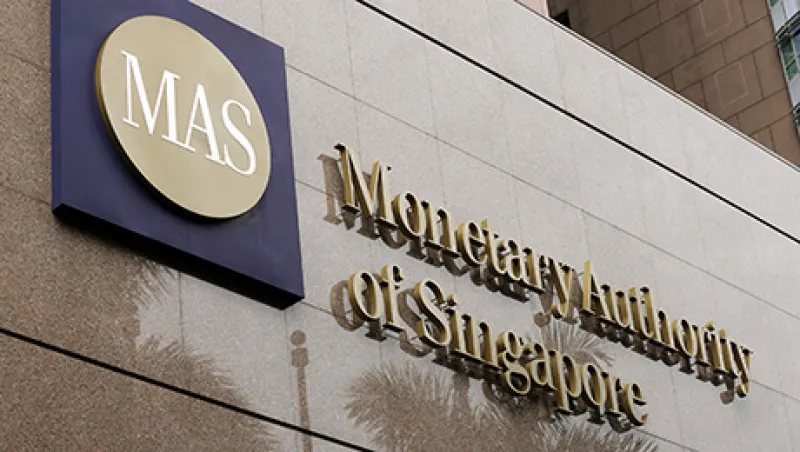
The logo of the Monetary Authority of Singapore (MAS) is displayed at the MAS headquarters in Singapore, on Thursday, July 29, 2010. Singapore, which had a record first-half expansion, said economic activity will probably remain at "high levels" for the rest of the year, adding pressure on business costs and spurring inflation. Photographer: Munshi/Ahmed/Bloomberg
Munshi Ahmed/Bloomberg

